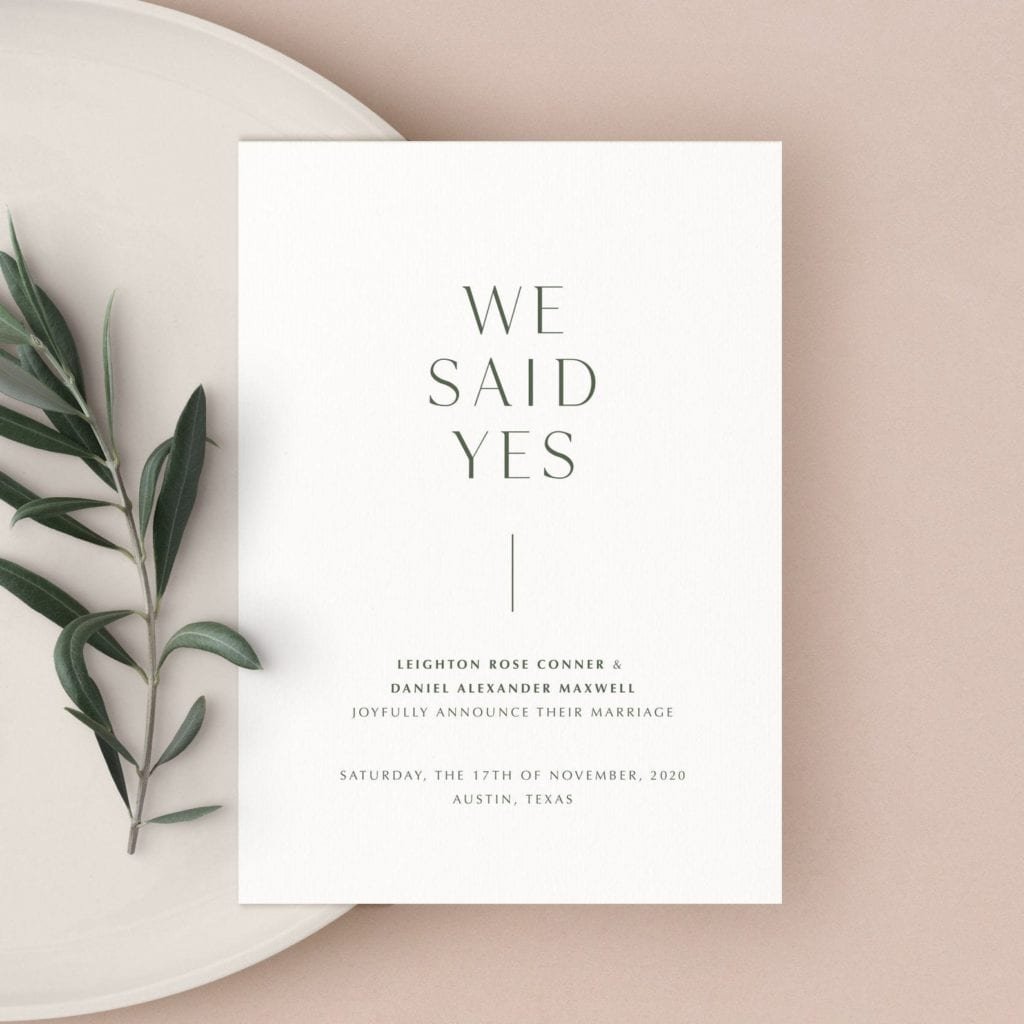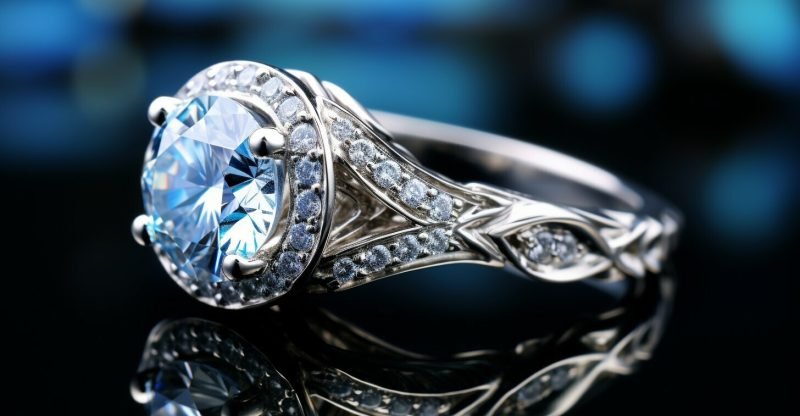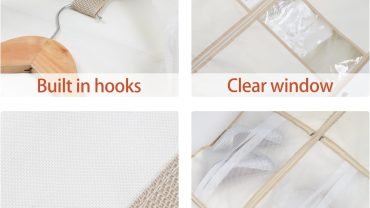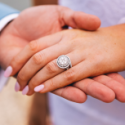Discover Hypoallergenic Engagement Rings Perfect for Sensitive Skin
Are you searching for the perfect engagement ring that won’t irritate your sensitive skin? Look no further than our exquisite collection of hypoallergenic engagement rings. If you have sensitive skin and are prone to allergic reactions, finding a hypoallergenic engagement ring is essential. Metals like nickel, copper, and lead are common culprits of skin allergies and should be avoided.
Instead, consider hypoallergenic metals such as platinum, cobalt, palladium, and high-karat gold. Platinum is a safe and durable option for sensitive skin, while cobalt is scratch-resistant and affordable. Palladium is similar to platinum in strength and durability but more lightweight. High-karat gold, particularly 18K or 24K, is hypoallergenic compared to white gold, which often contains nickel. Remember, it’s always best to consult with a dermatologist or doctor if you have metal allergies or sensitive skin.
Key Takeaways:
- When choosing an engagement ring for sensitive skin, opt for hypoallergenic metals like platinum, cobalt, palladium, and high-karat gold.
- Metals like nickel, copper, and lead can cause skin allergies and should be avoided.
- Platinum is a safe and durable option for individuals with sensitive skin.
- Cobalt is scratch-resistant and more affordable than other hypoallergenic metals.
- Palladium offers the strength and durability of platinum but is more lightweight.
Understanding Metal Allergies and Sensitivity
Metal allergies and sensitivity can cause discomfort and irritation, especially for those with sensitive skin. If you are prone to allergic reactions, it’s important to understand which metals to avoid when choosing an engagement ring. Common metals like nickel, copper, and lead are known to trigger skin allergies. These metals are often used as alloys in jewelry, making it crucial to opt for hypoallergenic alternatives.
When your skin comes into contact with a metal you are allergic to, it can result in a variety of symptoms, including redness, itching, and even rashes. These reactions are caused by an immune response to the metal, which can vary in severity from person to person. To avoid these allergic reactions, it’s advisable to choose a hypoallergenic metal for your engagement ring.
In the search for hypoallergenic metals, there are several options to consider. Platinum is a popular choice due to its safety and durability. It is considered hypoallergenic and does not contain common allergens like nickel. Another option is cobalt, which is scratch-resistant and more affordable compared to platinum. Palladium, similar to platinum in strength and durability, offers the added advantage of being lightweight. High-karat gold, particularly 18K or 24K, is another hypoallergenic alternative to consider, as it does not typically contain the nickel commonly found in white gold.
| Metal | Advantages |
|---|---|
| Platinum | Durable and hypoallergenic |
| Cobalt | Scratch-resistant and affordable |
| Palladium | Lightweight and compatible with sensitive skin |
| High-karat gold | Hypoallergenic compared to white gold |
In conclusion, if you have sensitive skin or known metal allergies, it’s important to choose a hypoallergenic engagement ring. By avoiding allergenic metals like nickel, copper, and lead, and opting for metals such as platinum, cobalt, palladium, or high-karat gold, you can enjoy wearing your engagement ring without any discomfort or irritation. It’s always best to consult with a dermatologist or doctor if you have concerns about metal allergies or sensitive skin.
Hypoallergenic Metals for Engagement Rings
When it comes to hypoallergenic engagement rings, platinum and gold are among the top choices for individuals with sensitive skin. These metals offer both safety and style, making them ideal for those who want to avoid allergic reactions and maintain their comfort.
| Metal | Benefits |
|---|---|
| Platinum | Platinum is a durable and hypoallergenic metal that is naturally white in color. It’s perfect for those with sensitive skin as it doesn’t contain common allergens like nickel. Platinum engagement rings are not only beautiful but also resistant to tarnishing and wear, making them a long-lasting choice. |
| Gold | High-karat gold, such as 18K or 24K, is another excellent hypoallergenic option. Unlike white gold, which may contain traces of nickel, high-karat gold is less likely to cause skin irritations. It has a rich and luxurious look, making it a popular choice for engagement rings. |
While platinum and gold are highly recommended, there are other hypoallergenic metals worth considering:
- Cobalt: Cobalt is a scratch-resistant and affordable alternative to platinum. It is a durable metal that can withstand everyday wear and tear.
- Palladium: Palladium is similar to platinum in terms of strength and durability, but it is lighter in weight. This makes it a comfortable option for those who desire a hypoallergenic metal.
Remember, if you have metal allergies or sensitive skin, it’s always best to consult with a dermatologist or doctor. They can provide personalized recommendations and guidance based on your specific needs.
Platinum: A Safe and Durable Option
Platinum engagement rings are not only stunning in appearance but also a safe and durable choice for individuals with sensitive skin. This hypoallergenic metal is well-known for its high quality and resistance to tarnishing, making it an excellent investment for long-lasting beauty. Its natural white color complements a wide range of gemstones, allowing you to create a personalized and meaningful engagement ring.
With its exceptional strength and durability, platinum engagement rings are designed to withstand everyday wear and tear. They are resistant to scratches and dents, ensuring that your ring remains as stunning as the day you first received it. Platinum’s inherent hypoallergenic properties make it an excellent choice for those with sensitive skin or known metal allergies, providing a comfortable and irritation-free wearing experience.
Platinum Engagements Rings: A Symbol of Forever
“Platinum is a rare and precious metal that symbolizes everlasting love and commitment. Its timeless beauty and exceptional durability make it the perfect choice for engagement rings, symbolizing a love that will stand the test of time.”
When selecting a platinum engagement ring, consider the different designs and styles available to find the one that best suits your taste and personality. Whether you prefer a classic solitaire, a vintage-inspired setting, or a modern halo design, platinum’s versatility ensures that you can find the perfect ring to symbolize your love and commitment.
| Benefits of Platinum Engagement Rings | Considerations |
|---|---|
| Exceptional durability and strength | Higher price point compared to other metals |
| Hypoallergenic properties for sensitive skin | Requires periodic cleaning and maintenance |
| Resistant to scratches and tarnish | Natural white color may fade over time |
Investing in a platinum engagement ring not only ensures its longevity but also represents a symbol of forever. Its enduring beauty and hypoallergenic properties make it an ideal choice for those with sensitive skin, allowing you to cherish your ring for a lifetime of love and commitment.
Gold: High-Karat for Hypoallergenic Appeal
For those with sensitive skin, high-karat gold offers a hypoallergenic option that exudes elegance and is less likely to cause irritation compared to white gold. Unlike white gold, which often contains nickel, high-karat gold is less likely to trigger allergic reactions. With its rich, warm color and luminous shine, high-karat gold is a popular choice for engagement rings among individuals with sensitive skin.
High-karat gold is typically available in 18K or 24K, indicating the gold’s purity. The higher the karat, the purer the gold and the less likely it is to cause skin irritation. This is because high-karat gold contains a higher percentage of gold and fewer alloy metals that are common allergens. If you have a known nickel allergy or have experienced skin reactions to other metals, opting for high-karat gold can provide peace of mind.
When choosing a high-karat gold engagement ring, consider the color options available. Yellow gold is a classic choice that complements a variety of skin tones. If you prefer a modern and sleek look, consider rose gold, which has a soft, romantic hue. Both yellow and rose gold are suitable for individuals with sensitive skin, as they are less likely to cause allergic reactions compared to white gold.
| Advantages of High-Karat Gold Engagement Rings: |
|---|
| • Hypoallergenic option for individuals with sensitive skin |
| • Rich, warm color and luminous shine |
| • Available in yellow gold or rose gold |
| • Less likely to cause skin irritation compared to white gold |
“High-karat gold is a beautiful and safe choice for individuals with sensitive skin. Its hypoallergenic properties and elegant appearance make it a sought-after option for engagement rings. With high-karat gold, you can have both style and peace of mind.”
Tips for Choosing a High-Karat Gold Engagement Ring:
- Consult with a jeweler to ensure the gold is of high quality and purity.
- Consider your personal style and choose between yellow gold or rose gold.
- Opt for a design that suits your preferences and showcases the beauty of high-karat gold.
- Ensure the engagement ring is properly sized for a comfortable fit.
When it comes to selecting an engagement ring for sensitive skin, high-karat gold is a top choice. Its hypoallergenic properties, timeless appeal, and wide range of design options make it a perfect option for those seeking a beautiful and safe ring to wear every day.
Cobalt: Scratch-Resistant and Affordable
If you’re seeking a hypoallergenic engagement ring that combines durability, affordability, and resistance to scratches, consider cobalt as an excellent option. Cobalt is a naturally white metal that shares many qualities with platinum, making it an attractive alternative. Not only is cobalt hypoallergenic, but it also offers exceptional resistance to scratches and tarnishing, ensuring your engagement ring will maintain its beauty for years to come.
In addition to its scratch resistance, cobalt is also an affordable choice for those on a budget. Compared to other metals like platinum and gold, cobalt offers a more cost-effective option without compromising on quality. This makes it an appealing choice for couples looking for a stunning and durable engagement ring that won’t break the bank.
When it comes to style, cobalt engagement rings offer a sleek and modern look. The metal’s bright white color resembles platinum, creating an elegant and timeless aesthetic. Whether you prefer a simple solitaire or a more intricate design, cobalt provides the versatility to suit any style preference.
| Advantages of Cobalt Engagement Rings | Considerations |
|---|---|
|
|
Before making a final decision, it’s important to note that cobalt rings cannot be resized due to their durability. Additionally, cobalt is less malleable than other metals, which means intricate resizing or adjustments may not be possible. However, with proper care and maintenance, cobalt engagement rings can remain as beautiful as the day they were first worn.
In Summary
If you’re looking for an affordable, scratch-resistant, and hypoallergenic engagement ring, cobalt is an excellent choice. Its durability and resistance to scratches make it ideal for daily wear, while its attractive white color provides a modern and elegant appearance. Keep in mind the considerations of cobalt rings, such as its non-resizability and specific cleaning requirements. By considering the advantages and limitations of cobalt, you can confidently choose a hypoallergenic engagement ring that suits your style and budget, ensuring both beauty and comfort for a lifetime.
Palladium: Strength and Lightweight Comfort
Palladium engagement rings offer the perfect blend of strength, lightweight comfort, and hypoallergenic properties, making them an ideal choice for individuals with sensitive skin. This rare and lustrous metal is part of the platinum group, known for its durability and resistance to tarnishing.
Compared to other metals, palladium is significantly lighter, making it comfortable for everyday wear. Its strength and durability ensure that your engagement ring will withstand the test of time while maintaining its natural beauty. Palladium is also highly resistant to scratching and tarnishing, preserving its luster and shine for years to come.
Why Choose Palladium?
- Hypoallergenic: Palladium is naturally hypoallergenic, making it perfect for individuals with sensitive skin. Unlike metals like nickel or copper, which can cause irritation and allergic reactions, palladium is gentle on the skin and reduces the risk of skin allergies.
- Lightweight Comfort: The lightweight nature of palladium makes it a comfortable choice for engagement rings. You can wear your ring all day without feeling weighed down or restricted, ensuring maximum comfort and enjoyment.
- Durable and Resilient: Palladium is known for its strength and durability, making it an excellent investment for your engagement ring. Its resistance to scratching and tarnishing means that your ring will maintain its stunning appearance even with everyday wear.
When choosing a palladium engagement ring, consider the design, style, and gemstone that best represents your love and personality. Whether you opt for a solitaire, halo, or vintage-inspired setting, palladium will enhance the beauty of your ring while offering peace of mind for those with sensitive skin.
| Benefits of Palladium Engagement Rings | |
|---|---|
| Hypoallergenic | Lightweight |
| Durable | Scratch-resistant |
| Tarnish-resistant | Natural luster |
Considering Metal Allergies and Sensitivity
If you have metal allergies or sensitive skin, it’s essential to consult with a dermatologist and carefully consider the metals used in engagement rings to ensure a comfortable and irritation-free experience.
Metal allergies, also known as contact dermatitis, can cause redness, rashes, itching, and other unpleasant reactions. By discussing your specific concerns with a dermatologist, you can gain valuable insights into which metals to avoid and which hypoallergenic options are best suited for your skin.
When selecting an engagement ring, it’s important to prioritize metals that are less likely to trigger allergies. Platinum is a top choice for sensitive skin due to its hypoallergenic properties and durability. Cobalt is another excellent option, offering scratch-resistance and affordability. Palladium, similar to platinum in strength and durability, provides lightweight comfort. High-karat gold, such as 18K or 24K, is also hypoallergenic compared to white gold, which often contains nickel.
| Hypoallergenic Metals | Benefits |
|---|---|
| Platinum | Safe and durable |
| Cobalt | Scratch-resistant and affordable |
| Palladium | Strength and lightweight comfort |
| High-karat gold | Hypoallergenic alternative to white gold |
By being proactive and informed, you can choose an engagement ring that not only symbolizes your love but also ensures the health and well-being of your skin. Prioritize hypoallergenic metals and consult with a dermatologist to make the best choice for your unique needs.
Avoiding Allergy-Causing Metals
When shopping for hypoallergenic engagement rings, it’s crucial to avoid metals like nickel and opt for specific metal alloy types that are less likely to cause allergic reactions. Nickel is a common allergen and can cause rashes, itching, and irritation for individuals with sensitive skin. It’s often mixed with other metals to create alloys, so it’s important to carefully consider the composition of the metals used in the ring.
To ensure your engagement ring is hypoallergenic, look for metals that are known to be less likely to cause allergic reactions. Some popular hypoallergenic options include platinum, cobalt, palladium, and high-karat gold. These metals have properties that make them suitable for individuals with sensitive skin or known allergies.
Platinum is a safe and durable option for those with sensitive skin. It is hypoallergenic and resistant to tarnish, making it a long-lasting choice for an engagement ring. Cobalt is another hypoallergenic metal that is scratch-resistant and more affordable compared to platinum. It offers a similar look and durability at a more accessible price point.
Palladium, like platinum, is a durable metal that is also lightweight, providing comfort for daily wear. It is hypoallergenic and can be a great alternative to other metals for individuals with sensitive skin. High-karat gold, particularly 18K or 24K, is also hypoallergenic compared to white gold, which often contains nickel. It offers a luxurious and timeless look while being gentle on the skin.
When selecting a hypoallergenic engagement ring, consider consulting with a dermatologist or doctor if you have metal allergies or sensitive skin. They can provide guidance and help you make an informed decision based on your specific needs. Remember, your engagement ring should not only be beautiful but also safe and comfortable to wear.
| Allergy-Causing Metal | Hypoallergenic Metal Alternative |
|---|---|
| Nickel | Platinum, Cobalt, Palladium, High-karat Gold |
When shopping for hypoallergenic engagement rings, it’s crucial to avoid metals like nickel and opt for specific metal alloy types that are less likely to cause allergic reactions.
- Platinum is a safe and durable option for sensitive skin.
- Cobalt is scratch-resistant and more affordable than platinum.
- Palladium offers strength, durability, and lightweight comfort.
- High-karat gold, such as 18K or 24K, is hypoallergenic compared to white gold.
Remember to consult with a dermatologist or doctor if you have metal allergies or sensitive skin.
Choosing the Hypoallergenic Engagement Ring of Your Dreams
With a wide selection of hypoallergenic engagement rings available, you can find the perfect ring that meets your preferences and caters to your sensitive skin or known allergies.
When exploring your options, consider the different hypoallergenic metals that are suitable for engagement rings. Platinum is a popular choice due to its safety and durability. It is hypoallergenic and won’t cause any skin irritation. Additionally, platinum is known for its timeless beauty, making it an elegant choice for your engagement ring.
If you’re looking for a more affordable option, consider cobalt. Cobalt is a hypoallergenic metal that is scratch-resistant, ensuring your ring will withstand the test of time. It offers a sleek and modern look, perfect for those with a contemporary taste.
Another hypoallergenic metal to consider is palladium. It shares similar qualities to platinum in terms of strength and durability but is lighter in weight. Palladium engagement rings are not only hypoallergenic but also provide a comfortable fit for everyday wear.
| Metal | Qualities |
|---|---|
| Platinum | Safe, durable, and elegant |
| Cobalt | Affordable and scratch-resistant |
| Palladium | Lightweight, strong, and hypoallergenic |
Remember, it’s always best to consult with a dermatologist or doctor if you have metal allergies or sensitive skin. They can provide personalized recommendations based on your individual needs. By choosing a hypoallergenic engagement ring, you can ensure that your special piece of jewelry brings joy without any unwanted skin reactions.
The Best Metals for Sensitive Skin
When it comes to metals that are best for sensitive skin, gold and platinum are great options to consider, while copper is often associated with allergies and should be approached with caution. If you have sensitive skin or are prone to skin allergies, choosing the right metal for your engagement ring is crucial to ensure a comfortable and safe wearing experience.
Gold: High-karat gold, particularly 18K or 24K, is known for its hypoallergenic properties and is less likely to cause skin reactions compared to other types of gold, such as white gold. It contains a higher percentage of pure gold and is less likely to contain nickel, which is a common allergen. High-karat gold engagement rings not only offer hypoallergenic appeal but also exude a luxurious and rich appearance.
Platinum: Platinum is an excellent choice for individuals with sensitive skin due to its hypoallergenic and durable nature. It is a naturally white metal, making it an ideal option for engagement rings. Platinum engagement rings are resistant to tarnish and corrosion, ensuring long-lasting beauty. Additionally, platinum is hypoallergenic and rarely causes allergic reactions, providing peace of mind for those with sensitive skin.
| Gold | Platinum | |
|---|---|---|
| Allergies | Less likely to cause skin reactions | Rarely causes allergic reactions |
| Durability | Moderate | High |
| Color | Various shades, including white gold | Naturally white |
It’s important to note that everyone’s skin is different, and individual sensitivities may vary. If you have a known metal allergy or are unsure about which metal is suitable for your skin, it’s always recommended to consult with a dermatologist or doctor. They can provide personalized advice and help you make an informed decision when selecting the perfect hypoallergenic engagement ring for your sensitive skin.
FAQ
Q: What does it mean when a ring is called a hypoallergenic ring?
A: A hypoallergenic ring is a ring made from materials that are unlikely to cause an allergic reaction. These rings are great for sensitive skin as they tend to be free from common allergenic metals, notably nickel, which can cause allergic contact dermatitis.
Q: Why am I getting a rash from my wedding ring?
A: The term for this is ‘wedding ring rash’, which is a form of allergic contact dermatitis. It occurs when your skin reacts to the metals in your ring, such as nickel. Symptoms may include itching, blistering, and rash.
Q: What types of metals should I avoid in rings for sensitive skin?
A: Those with sensitive skin or metal allergies should generally avoid rings made from nickel or metal alloys containing higher amounts of nickel. Gold may also be a problem if it’s less than 14k as these typically contain other metals that could cause a reaction.
Q: Can a jeweler tell me if a ring is hypoallergenic?
A: Yes, a reputable jeweler should be able to tell you the metal content of a ring, including whether it contains any common allergens. They can help identify hypoallergenic jewelry options that are safe for people with metal allergies or those who wear jewelry with sensitive skin.
Q: Are platinum engagement rings hypoallergenic?
A: Yes, platinum is one of the best hypoallergenic metals and is great for sensitive skin. Platinum rings do not contain nickel, and are resistant to wear and tarnish, making them an excellent choice for engagement ring metals.
Q: What are some hypoallergenic wedding rings and bands options?
A: Hypoallergenic wedding rings and bands can be made from a variety of metals including platinum, 18k white gold, palladium, or tungsten, all of which are considered hypoallergenic. However, personal preference and budget should also be considered when choosing a hypoallergenic wedding band.
Q: Can I wear a diamond engagement ring if I have sensitive skin?
A: Yes, you can wear a diamond engagement ring if you have sensitive skin. The diamond itself does not cause reactions, but the metal used in the ring can. Therefore, choosing a hypoallergenic metal for the setting, such as platinum or 18k white gold, will reduce the chance of skin irritation.
Q: Is it possible to plate a ring so it becomes hypoallergenic?
A: Yes, some rings can be plated in a hypoallergenic metal such as rhodium to prevent the underlying metal from coming into contact with your skin. However, this plate can wear off over time and will need to be reapplied to maintain the hypoallergenic properties.
Q: Are men’s rings available in hypoallergenic options?
A: Absolutely. Men’s rings are available in a range of hypoallergenic materials, such as platinum and tungsten. Whether formal wedding bands or casual wear jewelry, there are many options that are suitable for men with sensitive skin or metal allergies.
Q: Which metals are the best for hypoallergenic wedding rings?
A: The best metals for hypoallergenic wedding rings include platinum, 18k white gold, titanium, and tungsten. These metals are low-reactive, meaning they won’t cause an allergic reaction in most people and are considered the best hypoallergenic options for those with sensitive skin.
Conclusion
In conclusion, hypoallergenic engagement rings provide the perfect solution for individuals with sensitive skin, offering comfort, style, and peace of mind. If you have sensitive skin and are prone to allergic reactions, it is crucial to avoid metals like nickel, copper, and lead, which are common culprits of skin allergies. Instead, opt for hypoallergenic metals such as platinum, cobalt, palladium, and high-karat gold.
Platinum is an excellent choice for those with sensitive skin as it is not only safe but also highly durable. Its strength ensures that your engagement ring will stand the test of time while providing you with the utmost comfort. On the other hand, cobalt offers scratch-resistant properties, making it a budget-friendly option for those looking for an affordable hypoallergenic metal.
Palladium, similar to platinum in terms of strength and durability, is a lightweight alternative that offers added comfort. Its hypoallergenic properties make it an ideal choice for individuals with sensitive skin. If you prefer the beauty of gold, consider high-karat options like 18K or 24K, as they are less likely to cause allergic reactions compared to white gold, which often contains nickel.
When searching for your hypoallergenic engagement ring, remember to consult with a dermatologist or doctor if you have metal allergies or sensitive skin. Their expertise will help guide you in making the best choice to ensure the comfort and safety of your skin. With a hypoallergenic engagement ring, you can enjoy the joy and excitement of this special milestone without any worries about skin reactions or allergies.







